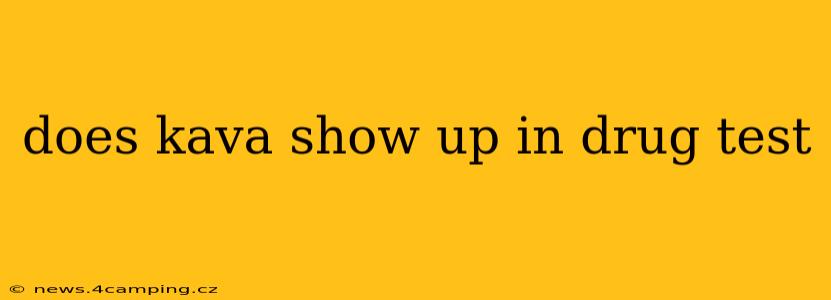Does Kava Show Up on a Drug Test?
Kava, a beverage made from the roots of the Piper methysticum plant, is increasingly popular for its purported relaxing and mood-boosting effects. However, a common question surrounding its use is whether it shows up on standard drug tests. The short answer is generally no, but let's delve into the details to understand why and what factors might influence this.
What Do Standard Drug Tests Look For?
Standard drug tests, particularly those used in workplace settings or by law enforcement, primarily screen for a panel of common drugs of abuse, including:
- Marijuana (THC): Detects tetrahydrocannabinol.
- Cocaine: Detects benzoylecgonine, a cocaine metabolite.
- Opiates (e.g., heroin, morphine, codeine): Detects various opiate metabolites.
- Amphetamines (e.g., methamphetamine, amphetamine): Detects amphetamine and methamphetamine.
- Benzodiazepines (e.g., Xanax, Valium): Detects various benzodiazepines and their metabolites.
Kava contains kavalactones, a group of chemical compounds responsible for its effects. These compounds are not typically included in standard drug screenings. Therefore, a positive result for kava on a routine drug test is highly unlikely.
Can Kava Cause False Positives?
While kava itself isn't typically detected, there's a theoretical possibility of indirect interference or a false positive, though this is rare. This could happen if:
- The test is not specific: Extremely sensitive or poorly calibrated tests might theoretically react to some kavalactones, producing a false positive for an unrelated substance. This is highly improbable with standard, commercially available tests.
- Contamination: If the kava product itself is contaminated with other substances, those substances could register on a drug test. Choose reputable brands and sources to minimize this risk.
What About More Comprehensive Drug Tests?
More comprehensive drug tests, sometimes used in specific clinical settings or for more thorough screenings, might have the capacity to detect a wider range of substances. However, even with these expanded panels, kava is not a routinely tested substance. These tests are also far more expensive and less commonly used.
Are There Any Other Concerns Regarding Kava and Drug Testing?
The main concern isn't kava showing up on a drug test but rather potential drug interactions. Kava can interact with certain medications, particularly those that affect the central nervous system. If you're taking any prescription medications, particularly sedatives or tranquilizers, it's crucial to consult your doctor before using kava. The interaction could lead to unexpected side effects, which might indirectly affect performance or necessitate medical attention—potentially leading to a situation requiring drug screening.
In Conclusion
In most cases, kava will not show up on a standard drug test. The likelihood of a false positive is extremely low with properly calibrated and commonly used tests. However, always prioritize safety and consult with a healthcare professional before using kava, especially if you are taking other medications or anticipate undergoing drug testing. The focus should be on responsible use and potential drug interactions, not the presence of kava itself on a typical drug screen.
